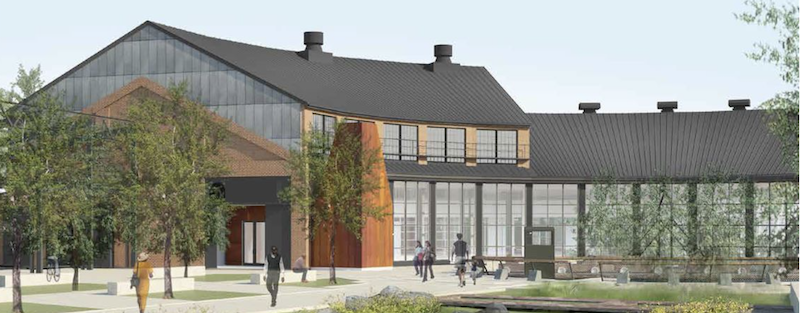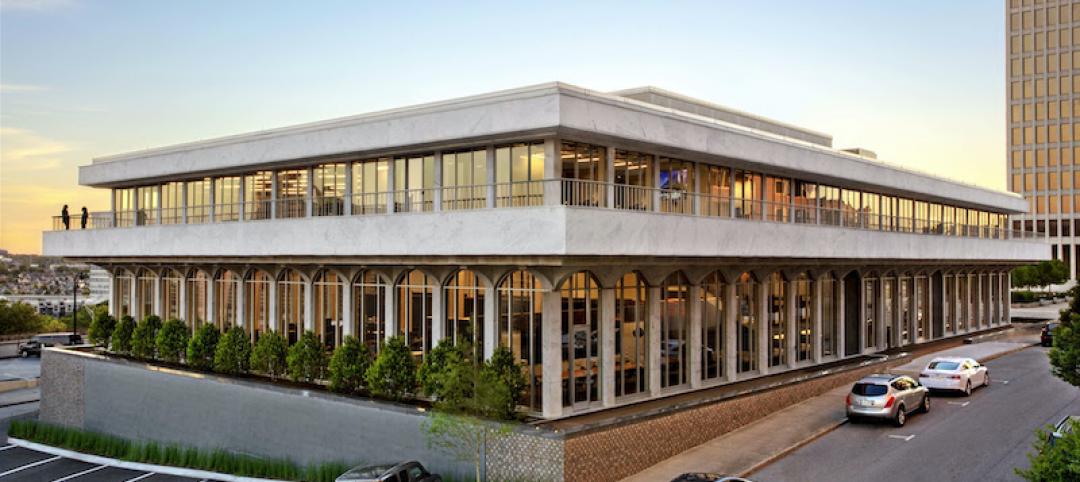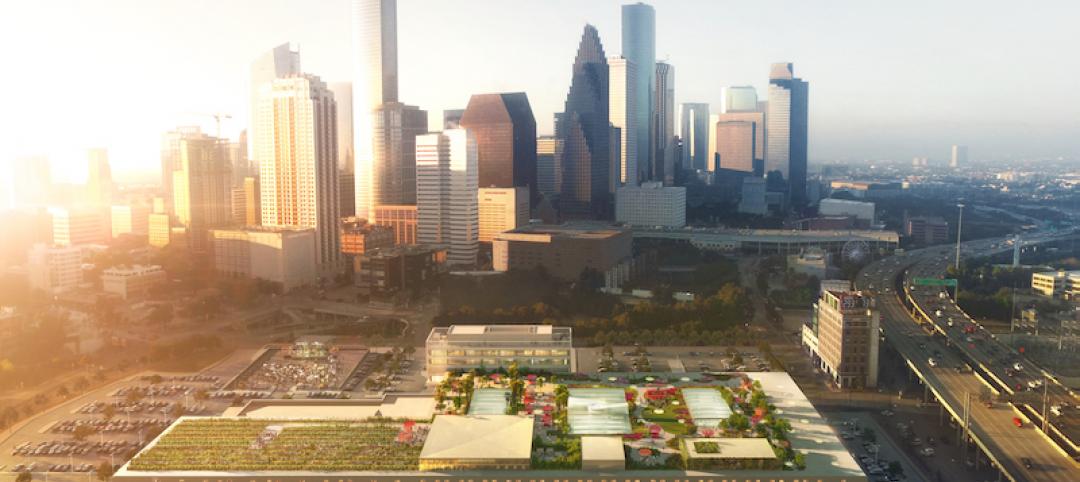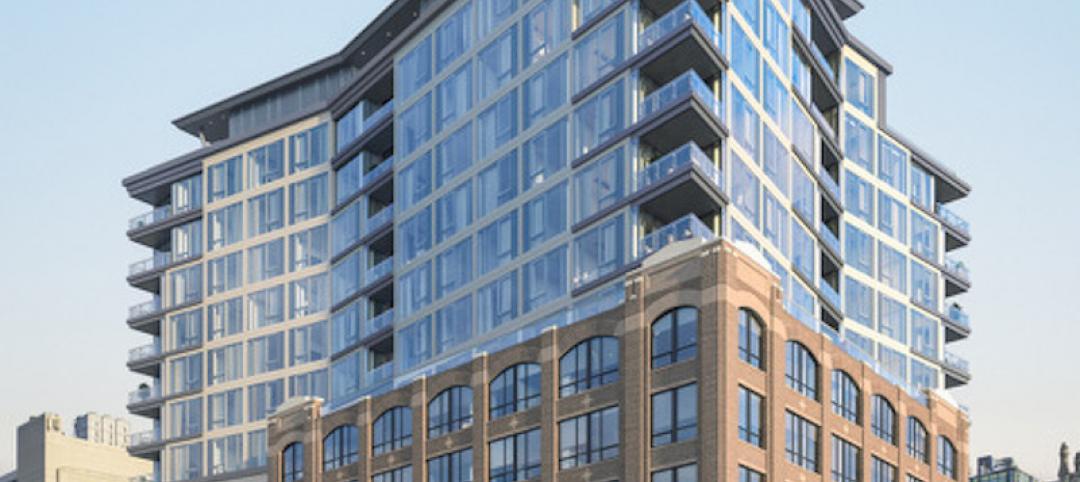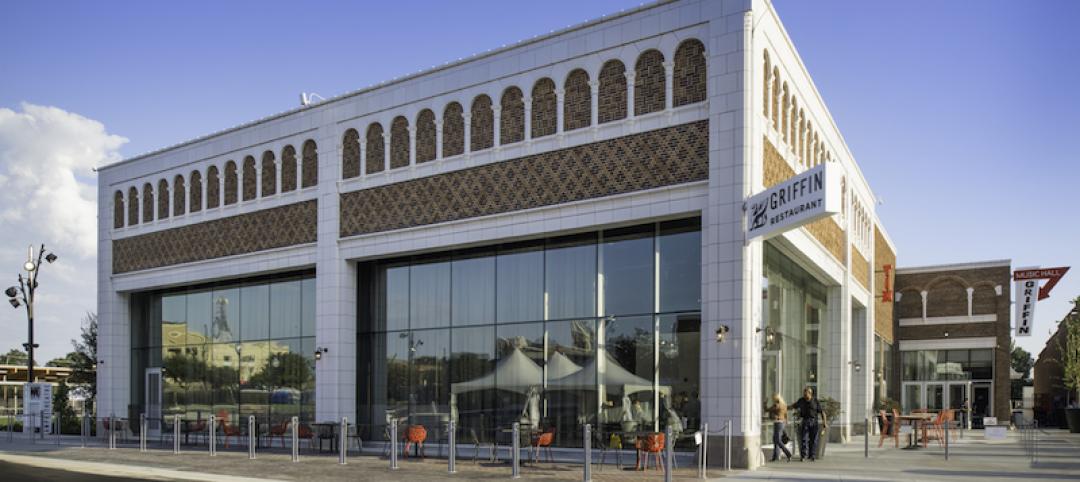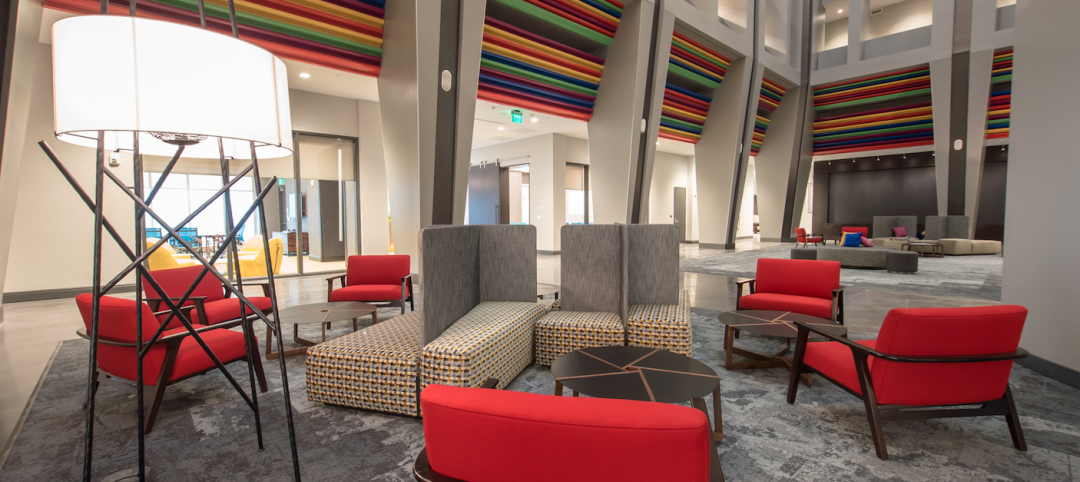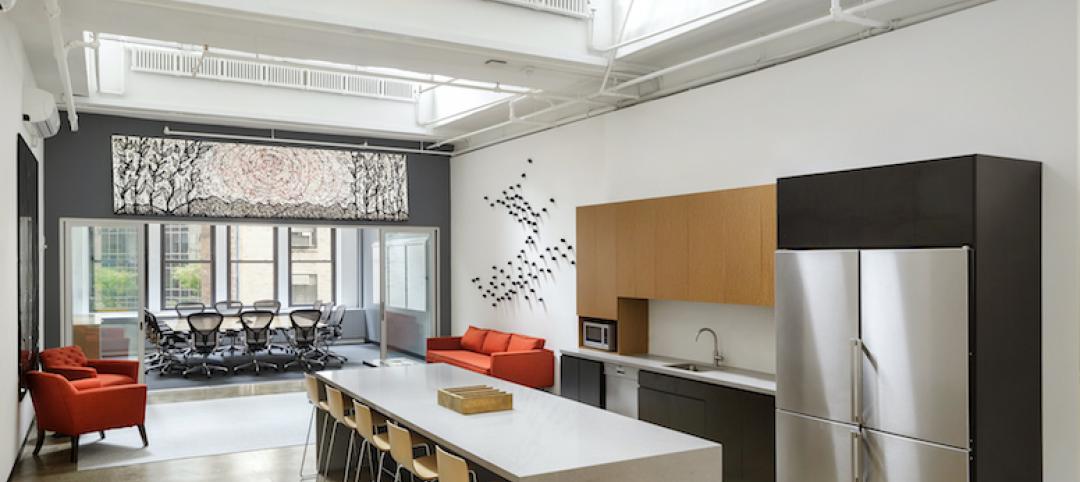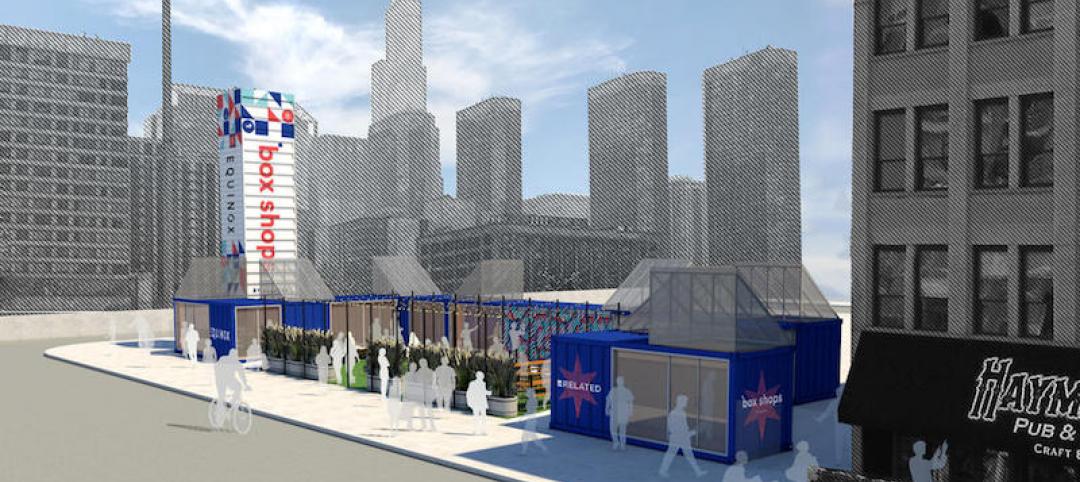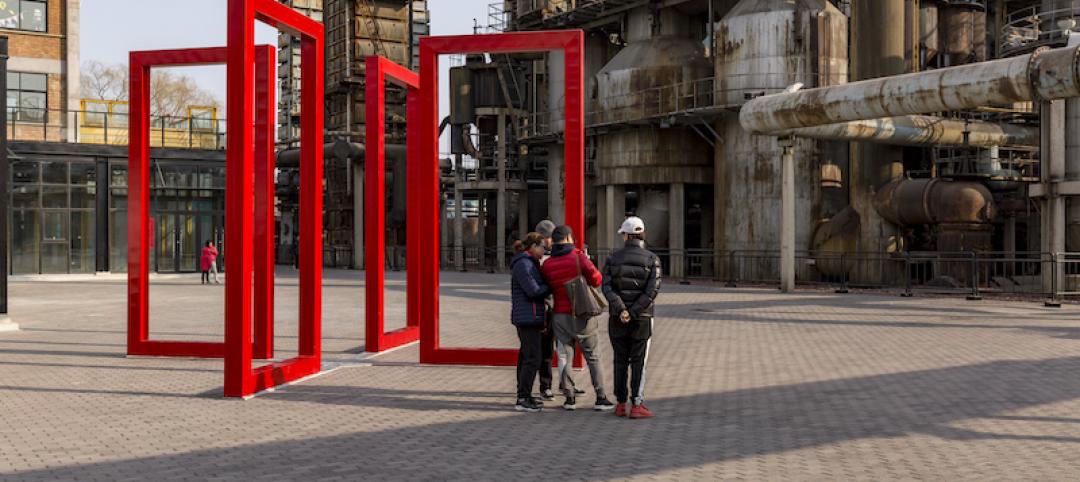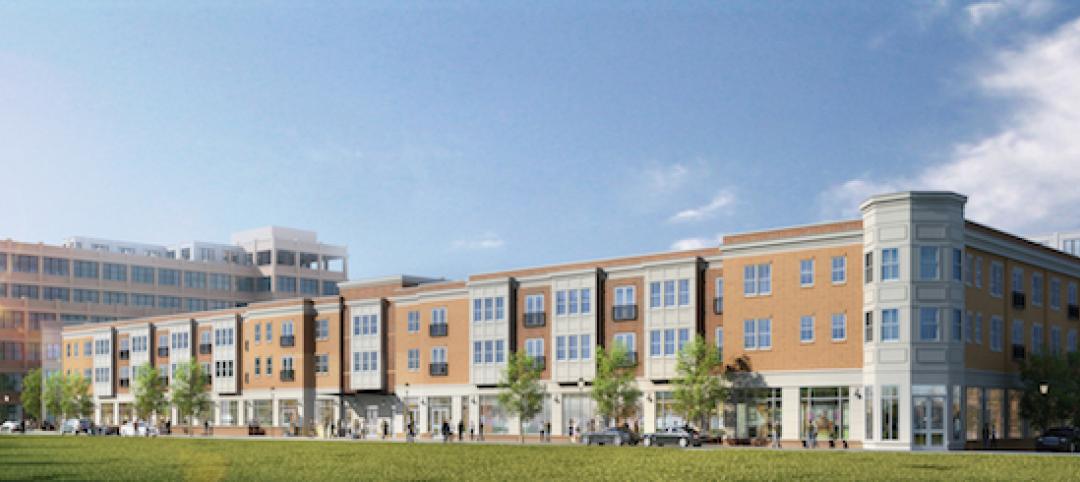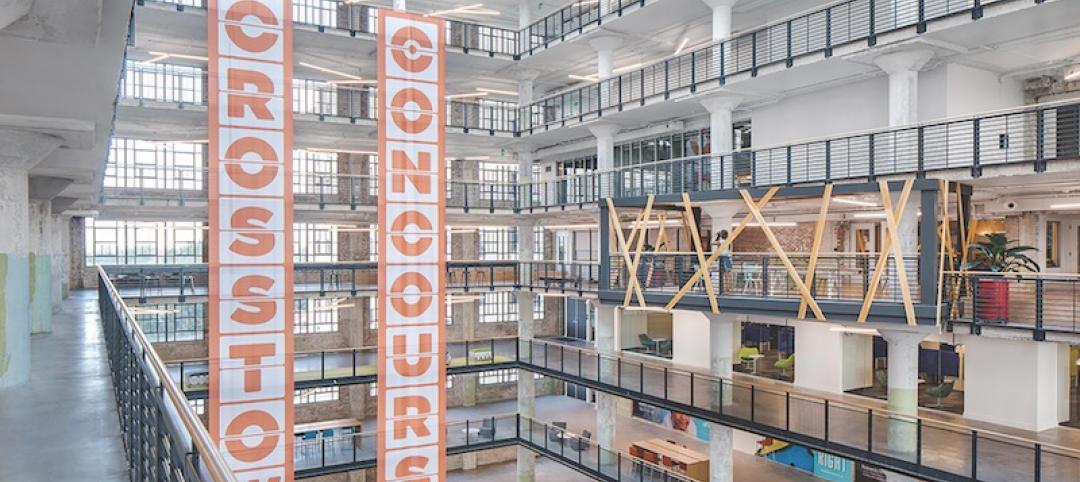A progress report on Hazelwood Green, the 178-acre redevelopment project in Pittsburgh, finds its current stage focusing on exterior amenities.
The redevelopment team led by Almono LP—an investment partnership of the Richard King Mellon Foundation, the Heinz Endowments, and the Benedum Foundation—has designed, funded, and completed a two-acre Plaza north of Mill 19, the quarter-mile-long skeleton of a former steel mill that sits on 12.6 acres of Hazelwood Green’s riverfront acres and, in its post-industrial reincarnation, offers 264,000 sf of rentable space to 21st-Century oriented manufacturing and automation tenants.
The plaza will serve as the civic heart of Hazelwood Green. It includes gardens, lawns, trees, and native vegetation, as well as a solar canopy, a tiered water feature, and hardscape surfaces for events and other uses. (Almono has engaged a team led by the urban planning firm Street Plans to devise and execute the plaza’s programming.)
Almono is also working with the Pittsburgh Parks Conservancy on placing a tree nursery on-site. That nursery would include tree species that mitigate air pollution, and a meadow with seating options.
In concert with agencies that include the Pennsylvania Environmental Council, Almono is working on a master plan to improve accessibility to a 1.2-mile stretch along the riverfront. Also in the works are several mobility initiatives that include coordination with Pittsburgh’s Office of Public Art to engage local designers and fabricators to add eight bus shelters to the site. (RFP responses are due next month, with the goal of installing the shelters later next year.)
Almono and the city want to add curbside charging stations for electric vehicles, and Almono has entered into an agreement with Healthy Ride to install a bikeshare station at the plaza by next spring.
A NEW PLATFORM FOR ENTREPRENEURS
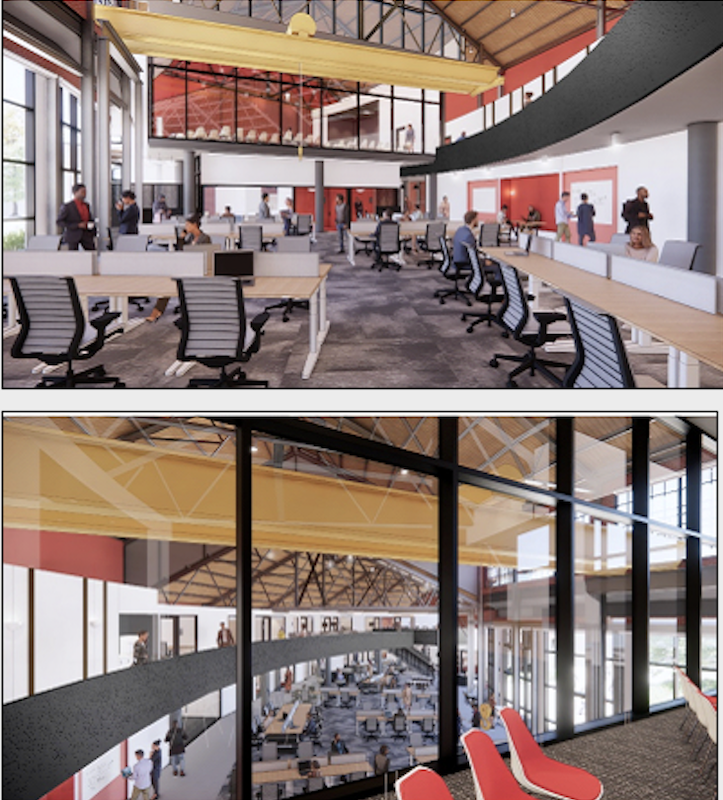
The Roundhouse's interior will have ample collaborative spaces for entrepreneurs.
The Hazelwood Green redevelopment is also proceeding with the adaptive reuse of existing buildings on-site. This spring should see the completion of the reconstruction of the Roundhouse, which dates back to the late 1880s, and once was used to stabilize train engines for servicing. This building is getting a $12.5 million rehabilitation and will re-emerge as the 26,000-sf home to an innovation center for OneValley, a global entrepreneurship platform formerly known as GSVlabs.
“The Roundhouse communicates its industrial origins, and when you are in the space, you recognize that it carries with it the memory and residue of over 100 years of 20th-Century activity and life,” says Anne Chen, principal with GBBN, this project’s architect and interior designer. “The design vision for this remarkable building has focused on connecting to its important role in Pittsburgh history while repositioning the space to usher in a new future of community enrichment, technology, manufacturing and entrepreneurialism.”
Other firms on the Roundhouse project team include WBCM (SE), Buro Happold (MEP), LaQuatra Bonco (landscape architect), KU Resources (CE), evolveRA (LEED management), PJ Dick (CM), and Grand View Development (owner’s rep). U3 Advisors, the development advisor for Hazelwood Green, has also been involved in the Roundhouse remake.
The Roundhouse’s original turntable surface is being repurposed to function as an outdoor relaxation space with wheeled seating on the rails. The building’s original bridge crane was recently rehung in the space. Overhead engine bay doors are being replaced with a glass curtainwall system to bring natural light into the building.
BIG PLANS OVER THE NEXT TWO DECADES
Local small manufacturers and artisans, working with the custom fabricator Monmade, have been engaged to design elements of the Roundhouse that include signage, interior lighting, wall tile, custom benches, and sliding doors.
Almono is seeking LEED Gold certification for the Roundhouse, whose stormwater management includes the use of bioswales and a large rain garden to keep and filter water on site.
Over the next two decades, Hazelwood Green’s redevelopment plan calls for 31 acres of open public space, 3,500 housing units, and 4.4 million sf of commercial building space.
Related Stories
Adaptive Reuse | Feb 25, 2020
Hastings Architecture creates its new HQ from a former Nashville Public Library building
The building was originally constructed in 1965.
Mixed-Use | Jul 18, 2019
POST Houston mixed-use development will include a five-acre “skylawn”
OMA is designing the project.
Multifamily Housing | Jun 17, 2019
Boston multifamily development combines a historic warehouse with a new, modern addition
The Architectural Team designed the project.
Adaptive Reuse | Jun 11, 2019
The power and possibility of adaptive reuse
Building reuse generally offers greater environmental savings than demolition or new construction.
Adaptive Reuse | Jul 9, 2018
Work, park, live: Inside Cincinnati’s parking garage turned lifestyle hotel
The Summit hotel and conference center is a converted parking garage that was once a factory.
Office Buildings | Jun 6, 2018
Final Cut: Jupiter Entertainment’s new production studio in New York combines office and editing spaces
The project team completed this full-floor renovation in four months.
Adaptive Reuse | Jun 4, 2018
Pop-up retail market on Chicago’s Randolph Street will be made of repurposed shipping containers
Related Midwest will open the market at 725 W. Randolph St. later this week.
Adaptive Reuse | May 7, 2018
A decade after it debuted, Beijing’s 798 Arts District is still a work in progress
China’s third-most-popular tourist attraction remains a magnet for creative tenants.
Adaptive Reuse | Apr 26, 2018
Edison Lofts building is New Jersey’s largest non-waterfront adaptive reuse project
Minno & Wasko Architects & Planners designed the building.
Adaptive Reuse | Mar 8, 2018
LEED Platinum for Memphis industrial reuse project
Memphis-based engineering firm OGCB and contractor Grinder Tabor Grinder led the removal of 54 million lb of concrete and 10 million lb of metal.


